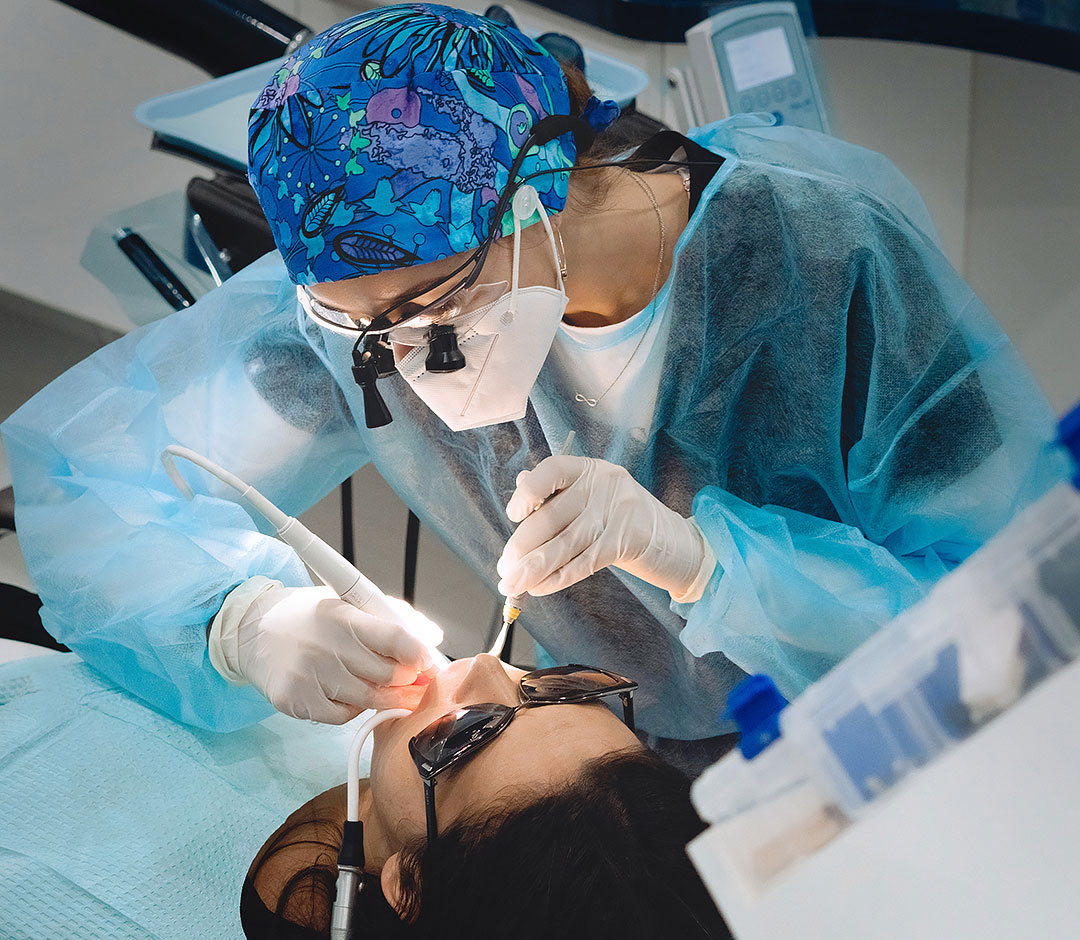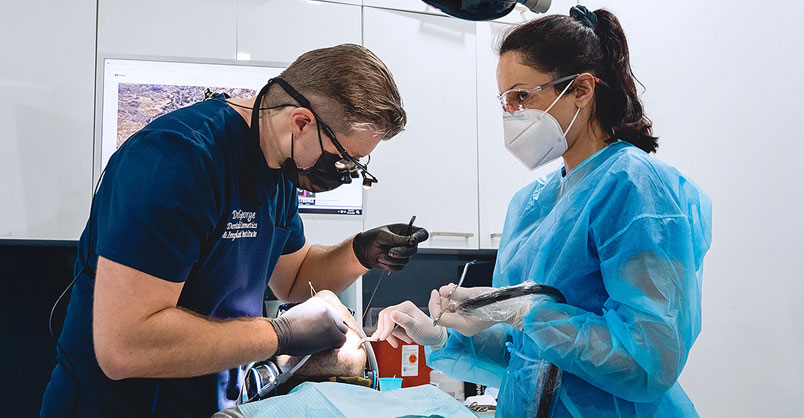What Takes Place When Receiving A Root Canal?
A root canal treatment removes infected or inflammatory pulp from inside teeth. The tooth is then meticulously cleaned, disinfected, filled, and sealed. Root canals near me therapy aims to save the natural tooth, stop the infection from spreading, and eradicate bacteria from the infected root canal.
Is a root canal distressing?
Because patients are given anesthesia, root canals aren't more bitter than other dental techniques like fillings or wisdom tooth extractions. But after the procedure, a root canal usually leaves the patient a little sore or numb, and it may even hurt a little for a few days.
How do you understand if you require a root canal?
When patients notice their teeth are sensitive, especially to hot and cold sensations, they typically require a root canal.
- A chipped or broken tooth
- The remaining sensitivity to hot or cold, even behind the sensation, has been released.
- Inflated or delicate gums
- Serious decay or darkening of the gums
- Extreme pain while chewing or biting
- Spots on the gums

What is the period of a root canal?
After obtaining a canal, a tooth is supposed to last at least ten years, according to dentists. But only the patient's will to live a longer life can achieve such a lifespan. On the other hand, by placing a dental crown on a tooth following treatment, a dental implant dentist near me
can also extend its life by a few years. The crown serves as a shield, shielding the tooth from foreign objects and environmental factors that could make it more sensitive.
What risks exist?
A root canal can leave behind bacteria, leading to various health issues. Even though some bacteria are frequently found in the mouth, they can be harmful if they cause an infection. Malaise, inflammation, and a head or neck abscess are possible conditions. Oral infections can also result in seemingly unrelated health issues.
When could I require a root canal procedure?
Bacteria can enter damaged teeth and grow there. An infection or abscess in the tooth's root may result from this. Root canal infections cannot be cured with antibiotics alone.
Try to save your tooth. When biting and chewing, it functions better than a fake tooth.
It Includes
- Gum infection
- smashed fillers
- Duplicated dental work that can damage the dental pulp
- Decay
- A damage
The symptoms of a root canal disease
- Inflated and delicate gums
- Pus near an infected tooth
- Acuity to burning or cold that lasts after the cold or hot item has driven
- Node of your neck and face
- Your tooth gets more unlit in colour

What occurs during root canal therapy?
Operate a regional narcotic to numb the area near your tooth
Put a sheet of rubber reached a dam over your tooth to keep the site neat and waterless
Dig a hole in the lid of your tooth to extract the pulp
Neat and disinfect the canals inside your tooth
Following one or more appointments for the cleaning procedure, your endodontist or dentist will use gutta percha, a sterile substance, to fill the canal space. For More appointments, visit a root canal specialist near me.
Conclusion
Some discomfort is normal for a few days after a successful root canal. If you maintain proper oral hygiene, this should go away independently because it is only temporary. You should see your near me dental clinic for a follow-up appointment if the pain persists for over three days.
Comments
Post a Comment